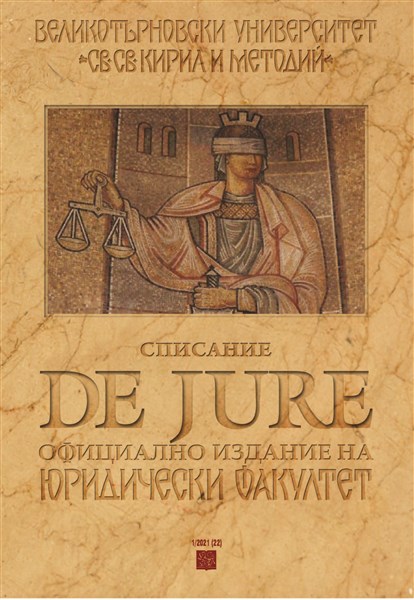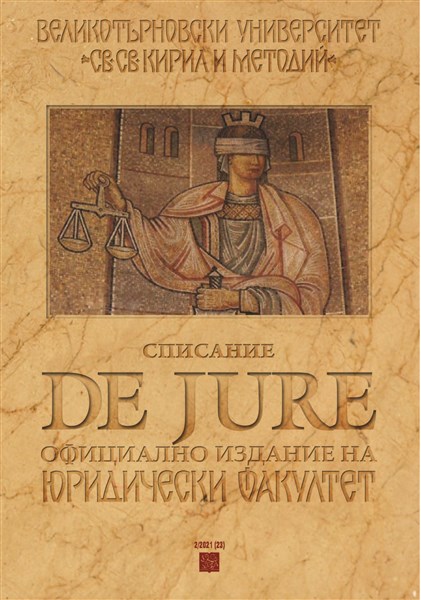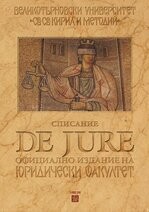Author(s): Vladimir Popov / Language(s): Bulgarian
Issue: 1/2021
This paper presents a brief overview of the act of insult, pursuant to Article 146, Paragraph 1, and Article 148, Paragraph 1, Sections 1‒4 of the Bulgarian Criminal Code /CC/) in comparison with other criminal offences under the CC, as well as with the administrative offence pursuant to the Petty Delinquency Counteraction Decree, where honour and dignity constitute the primary or additional subject matter of the defence. The paper takes into account the exisiting common characteristics of the criminal offences in question from both an objective and a subjective perspective, where different communicative situations resort only to derogatory attitude on the part of the deed’s subject towards the object of the infringement, or such attitude represents an aspect of the broader range of the illegal deed. The analysis includes a comparison between insult, as defined in Article 146, Paragraph 1 of the CC, and “grave insult”, as defined in the texts of Article 118, Article 124, Paragraph 2, and Article 132, Paragraph 1 of the CC. In addition, it contrasts the concept of insult in terms of definition and content with the insult pursuant to Article 146, Paragraph 1, and Article 148, Paragraph 1, Sections 1‒4 of the CC, with the criminal offences of military insult under Article 378 of the CC, delinquency under Article 325 of the CC, and petty delinquency under Article 1, Paragraph 2 of the Petty Delinquency Counteraction Decree, as well as with the offence of minor bodily injury under Article 130, Paragraph 2 of the CC. An emphasis is placed on the difference between them.
More...



